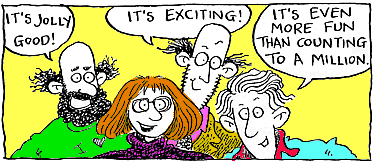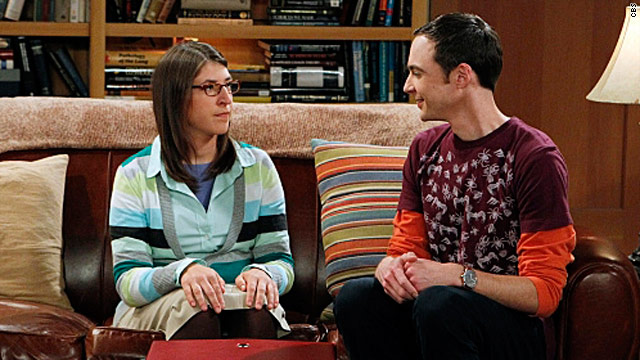
Posted on 03/14/2016 5:28:27 PM PDT by MtnClimber
A previously unnoticed property of prime numbers seems to violate a longstanding assumption about how they behave.
o mathematicians have uncovered a simple, previously unnoticed property of prime numbers — those numbers that are divisible only by 1 and themselves. Prime numbers, it seems, have decided preferences about the final digits of the primes that immediately follow them.
Among the first billion prime numbers, for instance, a prime ending in 9 is almost 65 percent more likely to be followed by a prime ending in 1 than another prime ending in 9. In a paper posted online today, Kannan Soundararajan and Robert Lemke Oliver of Stanford University present both numerical and theoretical evidence that prime numbers repel other would-be primes that end in the same digit, and have varied predilections for being followed by primes ending in the other possible final digits.
“We’ve been studying primes for a long time, and no one spotted this before,” said Andrew Granville, a number theorist at the University of Montreal and University College London. “It’s crazy.”
The discovery is the exact opposite of what most mathematicians would have predicted, said Ken Ono, a number theorist at Emory University in Atlanta. When he first heard the news, he said, “I was floored. I thought, ‘For sure, your program’s not working.’”
This conspiracy among prime numbers seems, at first glance, to violate a longstanding assumption in number theory: that prime numbers behave much like random numbers. Most mathematicians would have assumed, Granville and Ono agreed, that a prime should have an equal chance of being followed by a prime ending in 1, 3, 7 or 9 (the four possible endings for all prime numbers except 2 and 5).
(Excerpt) Read more at quantamagazine.org ...
Who didn’t know that?
Obvious to the most casual observer. sheesh
Surprising this was not found sooner.
Prime Numbers are sentient beings too! They have preferences, you know.
66Mhz Pentium FDIV flaw, I suggest.
I would like to open a store selling prime numbers. Customers would of course have to have exact change.
Dang it. I should have persevered instead of assuming there was something wrong with my slide rule.
I mentioned to someone just last week, “Have you ever noticed that among the first billion prime numbers, a prime ending in 9 is almost 65 percent more likely to be followed by a prime ending in 1 than another prime ending in 9?”
Remember, bet on 1.
Prime numbers are ultra important for cyber security. They are not a joke.
I was going to mention this back in 5th grade, but no one seemed interested.



'What is the first prime number larger than the 17th root of 9,000,355,126,606?'
caption - Do you realize I have never slept with you because I’m gay?
I read Free Republic for posts like this. Really. Unremitting politics makes a thin gruel.
Seven of course.
Wow, the final results of a $20 billion dollar grant .... color me impressed!
"Ceterum censeo 0bama esse delendam."
Garde la Foi, mes amis! Nous nous sommes les sauveurs de la République! Maintenant et Toujours!
(Keep the Faith, my friends! We are the saviors of the Republic! Now and Forever!)
LonePalm, le Républicain du verre cassé (The Broken Glass Republican)
Can’t wait for them to discover that 1 and only 1 even numbered prime number exists.
Disclaimer: Opinions posted on Free Republic are those of the individual posters and do not necessarily represent the opinion of Free Republic or its management. All materials posted herein are protected by copyright law and the exemption for fair use of copyrighted works.